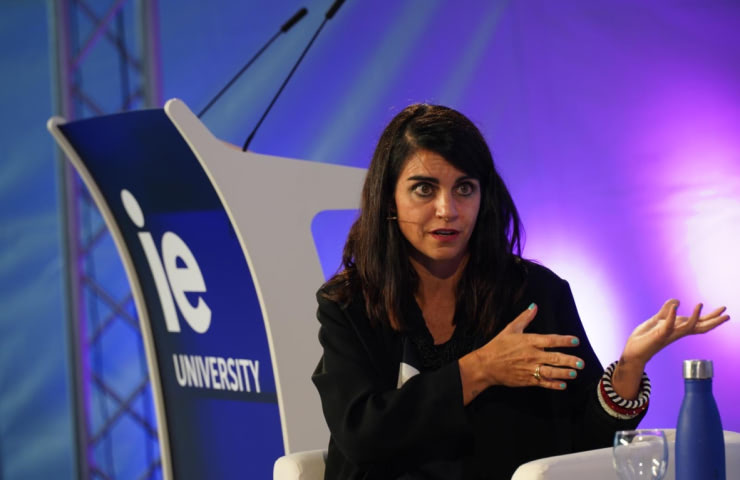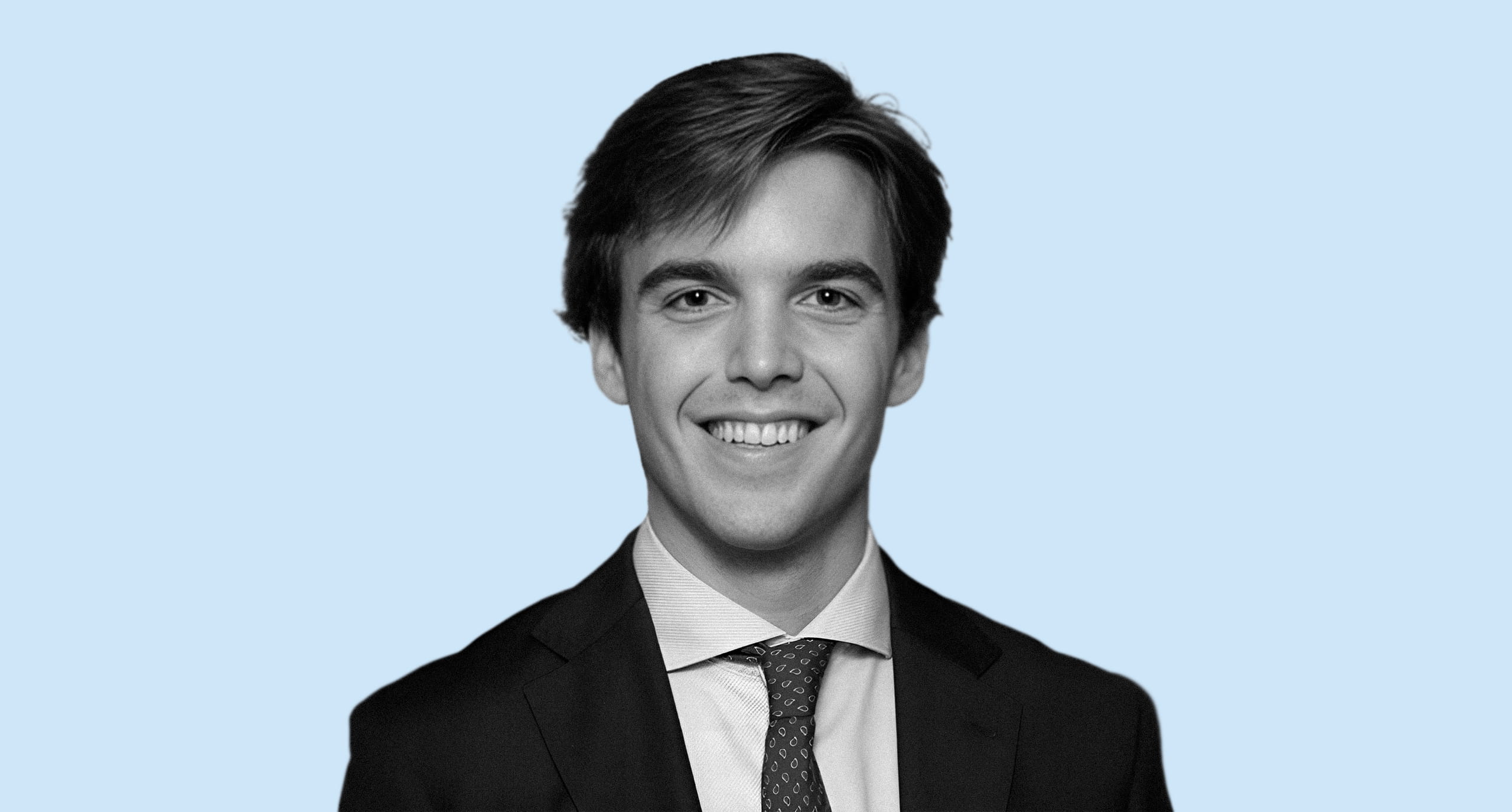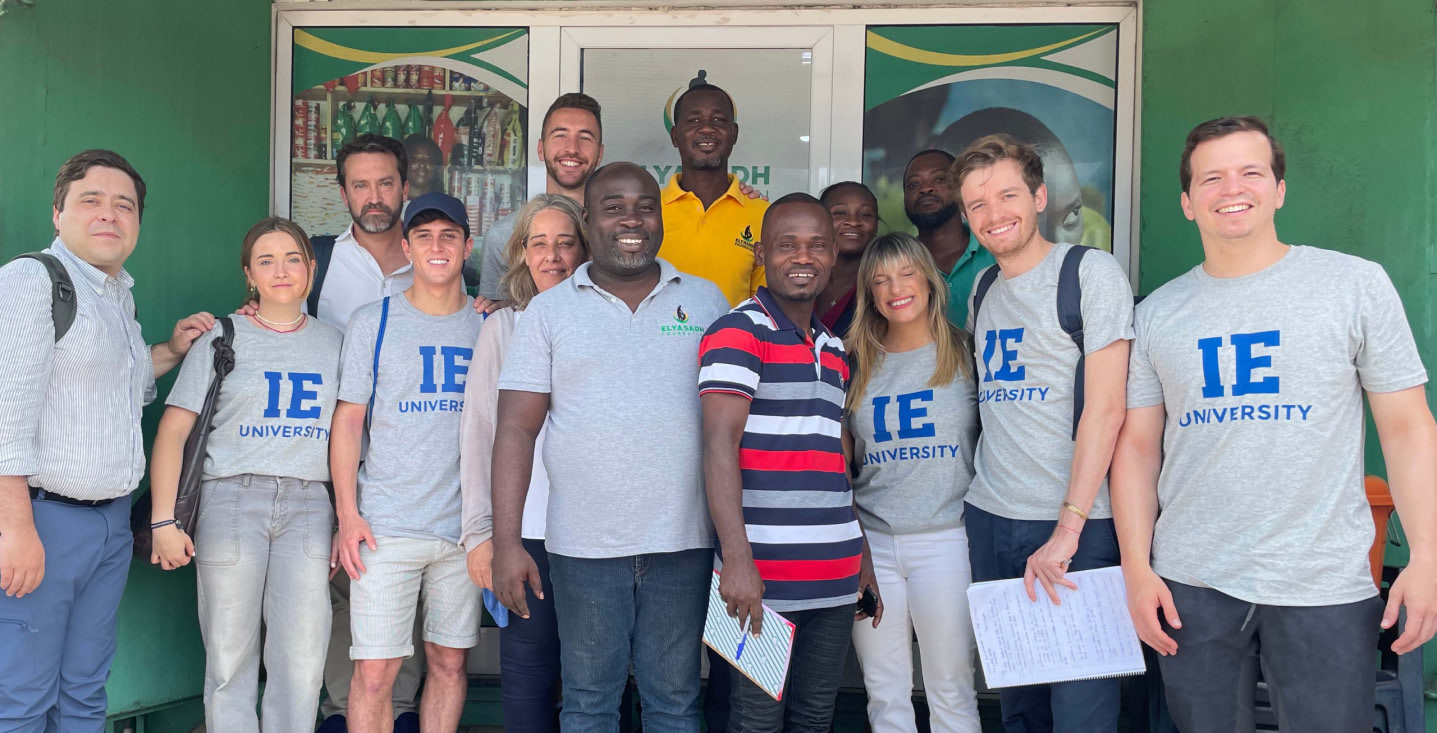26/10/2023
At IE University, we strive to take learning outside the classroom. To that end, each year experts gather in Segovia to celebrate our annual Hay Festival. This year, Isabela del Alcázar, global head of sustainability at IE University, sat down with three sustainability experts to discuss their take on the topic and the future of sustainability in business and beyond.
This year’s edition of Hay Festival Segovia took place this past September 15th -17th at our campus in Segovia. The literary festival co-hosted by IE University was born in 2006, and is designed to bring together writers and thinkers who are experts in their respective fields to share their insights. Through talks and panel discussions, our guests explored today’s most pressing topics, including sustainability, which we’ll focus on in this article.
Isabela del Alcázar, Global Head of Sustainability at IE University, participated in a conversation with three leading voices in the field. Vincent Doumeizel, Valerie Trouet, and David Lindo joined Isabela to offer their in-depth perspectives on nature and the wisdom it offers in an event titled Through the Eyes of Nature.
Vincent, a French environmentalist and sustainability advocate, reflects on powering the seaweed revolution in his most recent book. Valerie is a Belgian paleoclimatologist who has received an outstanding acclamation for her book on trees and what their rings can tell us about the climate. Finally, David is a prominent naturalist and broadcaster on the BBC. He’s one of the world’s leading experts in ornithological tourism and urban birds—which is why he is also known as the “urban birder.”
The four guests shared a thought-provoking conversation on why society’s future depends on our commitment to implementing sustainable practices in our everyday lives.
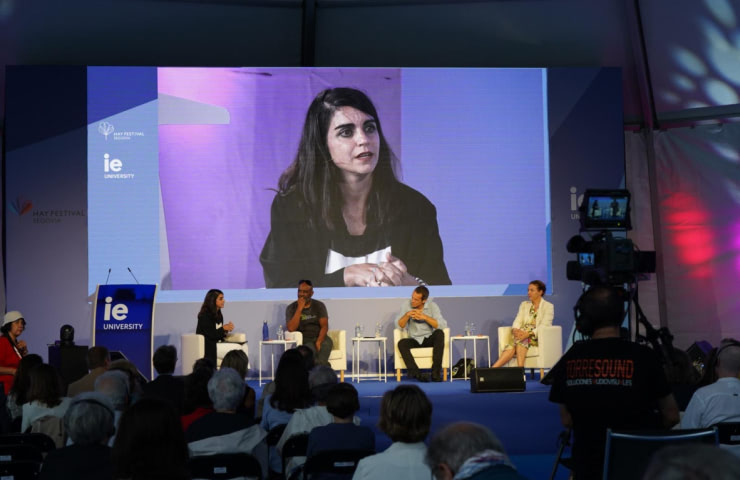
Nature: a conversation on saving the humans, not the planet
“Nature starts on your doorstep,” according to David. The word sustainability is popping up now more than ever before in a wide variety of conversations, from business strategies to festival planning to how we go about our day-to-day lives. Working toward a better world and focusing on the fight against climate change is no longer a want, but a need. That said, David believes that “if we stop phrasing it as ‘saving the planet’ and start phrasing it as ‘saving the humans,’ people will be able to understand that they are at risk and need to act now.”
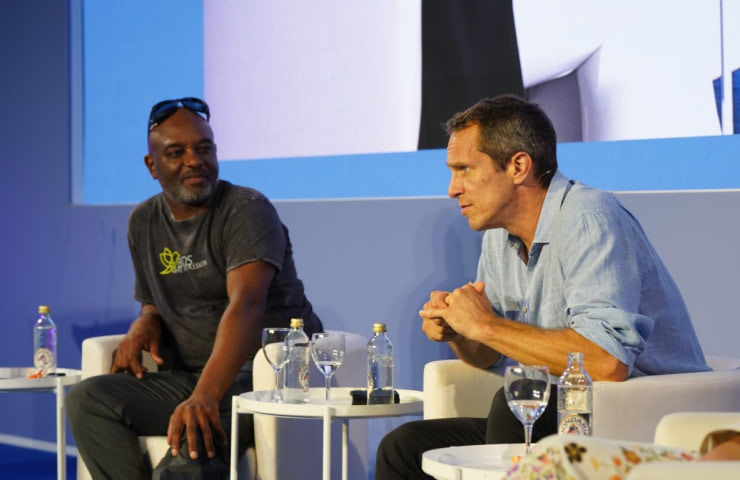
An obvious solution, according to David, is to “teach children about the environment and climate change from a young age.”
Climate change is written in the trees
From Valerie’s point of view, “What’s giving people anxiety isn’t just seeing the effects of climate change. What’s giving people anxiety is seeing a lack of solutions. They’re not seeing that anything is being done about it.” But the evidence of the effects of climate change is in plain sight. Valerie explains that tree rings can help unlock proof: “What we are doing to the planet is visible. Tree rings are small, but in warmer years, they are bigger. So, when you look at the core of every temperature-sensitive tree, you can see the rings getting bigger each year. The effects of climate change are visible in the trees.”
Valerie believes that nature as a solution to climate mitigation is not actually the answer when it comes to land. “Even if we fill the land with newly planted trees, it still doesn’t add up. Trees also need water and space to grow.”
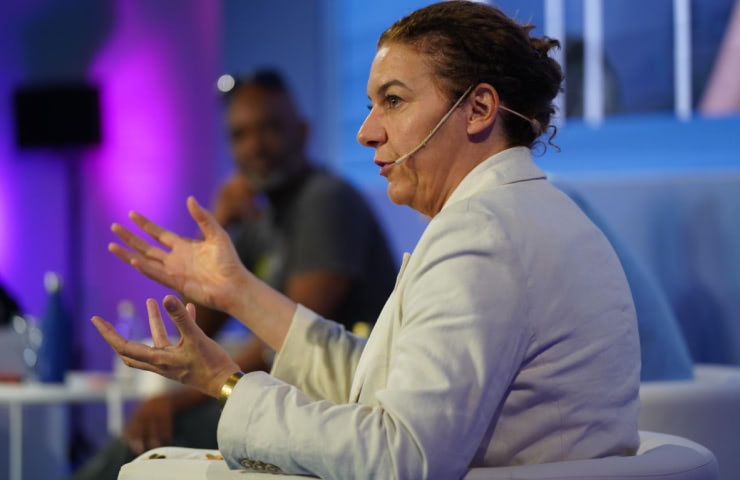
This shifts to Vincent’s point that the problem also lies in our food systems being outdated, especially when it comes to water, and that we must “create a circular economy between land and the ocean.” Vincent goes on to note that “70% of this planet is covered in ocean, and we are still in the Stone Age when it comes to taking advantage of it.”
As part of his research, Vincent finds that it’s imperative to start focusing on the ocean, as “we only know 10% of the ocean’s biodiversity, and we estimate that 80% of life on Earth is in the ocean.” David responds to Vincent by noting that “cities shouldn’t just be gray and concrete and glass; we need to incorporate nature into the places we inhabit, even if it’s in small ways.” And Vincent concludes with the idea that we cannot implement fear, but rather give people “hope and solutions.”
Finding smart solutions
Backing up his idea on finding solutions, Vincent closed the event by presenting a seaweed-based plastic that is both biodegradable and edible. As part of his solution to waste management and focusing on our oceans, Vincent explains that this plastic-replacing material is the future.
These speakers are passionate about sustainability and about their viewpoints on how we need to focus on “saving the humans.” Cities are in constant motion and change is inevitable, so humans must stop cutting down trees, start focusing on the ocean, and start teaching younger generations that their habits matter.
